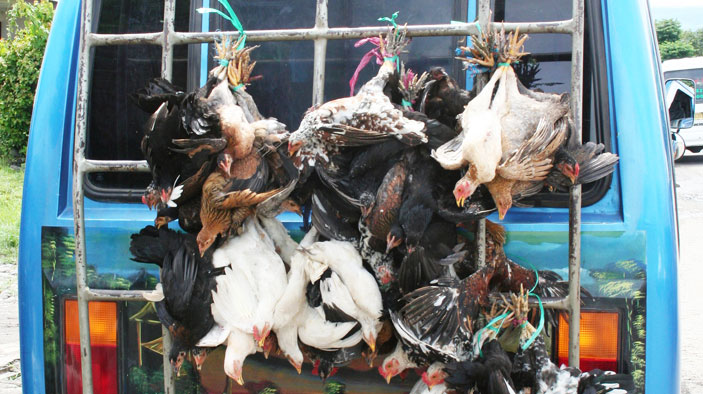Indonesia—Strategies Against Flu Emergence (SAFE)
Client: U.S. Agency for International Development
Duration: 2011-2013
Region: Asia and the Pacific
Country: Indonesia
Solutions: Global Health
In recent years, the U.S. Agency for International Development (USAID) and DAI have helped Indonesia—the country that has suffered the most human deaths from H5N1 avian influenza—make great strides in reducing its vulnerability to the virus. The SAFE project was created by USAID/Indonesia’s Avian and Pandemic Influenza Program to further reduce the risk and potential impact of the virus on animals and humans. We operated in high-risk districts of Western and Central Java and Greater Jakarta, in close collaboration with the government, the private sector, nongovernmental organizations, service providers, community groups, and other stakeholders.

Sample Activities
- Facilitate public-private partnerships in high-risk districts to improve biosecurity and good farming practices and to the transmission of H5N1 among poultry.
- Identify and apply incentives for the private poultry industry to increase biosecurity practices.
- Develop and implement safe farming strategies for commercial farms.
- Improve knowledge about H5N1 among key audiences through strategic communication and community empowerment.
- Increase awareness of the symptoms and risk factors of H5N1-related illness so households can recognize them and respond appropriately.
- Host face-to-face discussions with partner organizations and the Indonesian poultry industry to coordinate efforts.
Select Results
- At the end of two years, 347 farms had self-financed changes at their farms.
- Introduced academic partners and their students to new biosecurity practices by establishing Teaching Farms at their institutions and providing new information and material to reinforce classroom curriculum.
- At the end of two years, 2,721 vendors had made changes in 69 markets.
- Four new teaching farms were opened, completely financed by industry partners.
- At the end of two years, 202 documents were accessible globally and more than 2,052 visitors from 18 countries had accessed information about avian flu and pandemics.
RELATED CONTENT:
UNICEF Program Evaluations
DAI has been contracted to provide evaluation services for UNICEF under a long-term framework that acts as the primary mechanism for UNICEF’s regional and country offices to conduct evaluations.
Read More